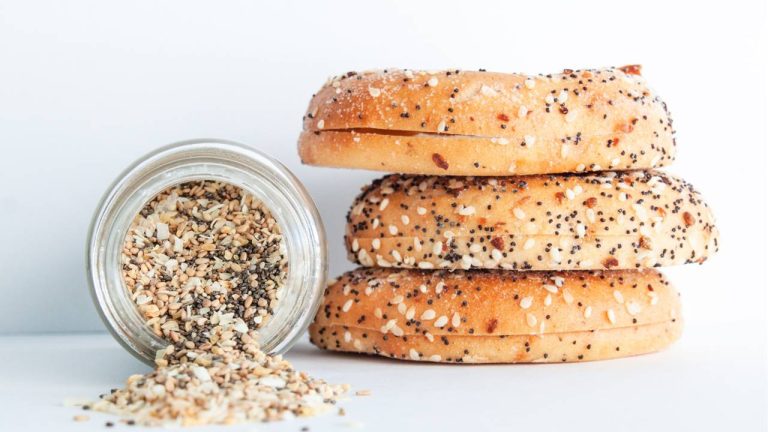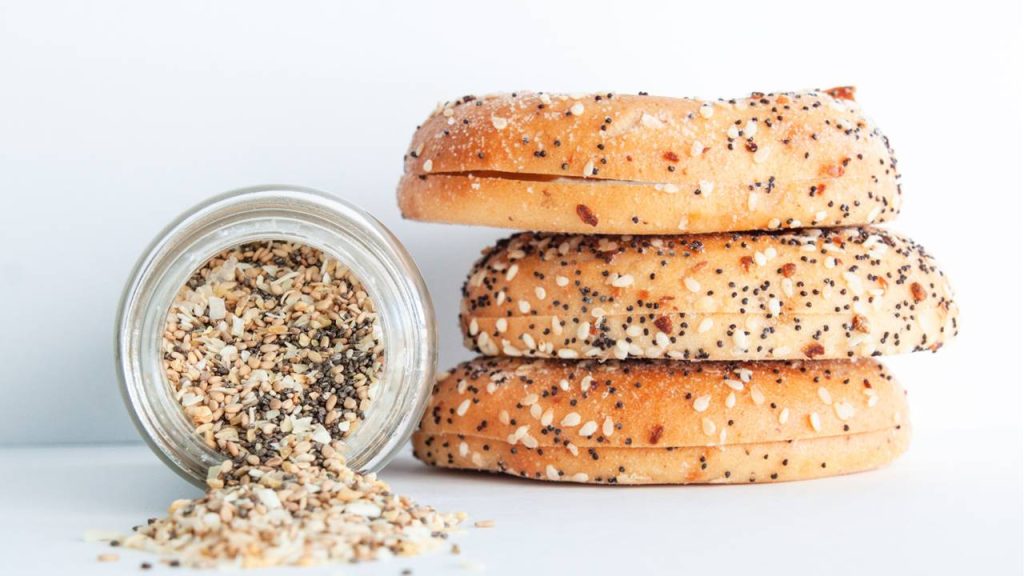
The tiny poppy seeds hold plenty of surprises. In addition to offering a delicious taste to bakery products, they have beneficial properties for health.

Poppy seeds have been used as a traditional remedy for centuries. Its flowers produce small, round and bluish seeds, black or light to dark gray, depending on where they are grown. These seeds are used in baked goods and traditional dishes around the world.
Poppy seeds (Papaver rhoeas) can be found in health food stores or specialty food stores. They have a slight tranquilizing action, although the poppy seeds known as opium poppy are those of opium (Papaver somniferum), which are not marketed because the plant is illegal.
POPPY SEEDS IN THE KITCHEN: NUTRITIONAL PROFILE
Like most seeds, poppy seeds are rich in fiber, unsaturated vegetable fats, and several micronutrients.
One tablespoon (10 grams) can provide 25% of the daily needs for manganese, 16% for copper, and around 6-7% for magnesium, phosphorus, zinc, iron, and vitamin B1.
They are very rich in calcium (1,450 mg / 100 g), surpassing algae and dairy products, but are taken in smaller quantities, sprinkled on breads or in salads and vinaigrettes. A handful of 30 g provides 54% of the calcium needed per day.
The seeds can be cold pressed to produce poppy seed oil, which is especially rich in omega-6 and omega-9 fats. It also contains small amounts of alpha-linolenic acid (ALA) from the omega-3 family.
The seeds have a mild taste and a grayish color. They can be used directly on the cooked dish (vegetables, soup, pasta) or previously toasted in the pan (which enhances its aroma).
In Asian cuisine, a cream is made with 100 g of butter, 25 g of poppy seeds, 10 g of sesame seeds and two tablespoons of olive oil. All the ingredients are melted in a water bath, let it rest until it cools and salt is added.
THERAPEUTIC USES OF POPPY SEEDS
1. STRENGTHEN BONES
The manganese that these seeds contain in abundance is an important trace element for bone health and blood clotting. This mineral also helps your body use amino acids, fats, and carbohydrates.
They are also high in copper, a mineral needed to produce connective tissue and transport iron.
2. RELIEVE PAIN
Poppies contain active ingredients with a powerful analgesic action, such as morphine, codeine, thebaine and other alkaloids that relieve pain and induce sleep. These compounds are found in the milky substance that is extracted from the capsule containing the seeds and is known as opium.
From the opium of a variety of purple and light flowers are extracted opiate drugs and drugs. The cultivation of this variety is legal but only for ornamental purposes. The rest of the varieties contain very small doses and the seeds have been cleaned so that they are free of this latex.
The seeds may contain traces of these compounds that can promote sleep and relieve pain. A study conducted at the German University of Sport in Cologne proved that after consuming muffins with poppy seeds, morphine and codeine can be found in the urine in sufficient quantity to be detected by the anti-doping controls carried out on cyclists.
Some varieties, such as Papaver rhoeas, with characteristic red flowers that are easy to see in the fields, do not contain morphine, but rhoeadin, a slightly sedative substance.
3. THEY ARE GOOD FOR THE HEART
In moderate amounts, the unsaturated fats and antioxidant polyphenols in poppy seeds can reduce the risk of heart attacks and strokes by up to 17%, especially if they replace less healthy saturated fats.
Combining them with a source rich in omega-3 such as walnuts or flax seeds can enhance their heart-healthy effect.
4. THEY PROMOTE DIGESTION
Poppy seeds can aid in digestion because of their richness in fiber, which improves intestinal health and fights constipation.
5. USEFUL AGAINST FERTILITY
In this case the benefit does not occur when consuming the seeds, but as a consequence a treatment that consists of irrigating the fallopian tubes with the oil of the poppy seeds.